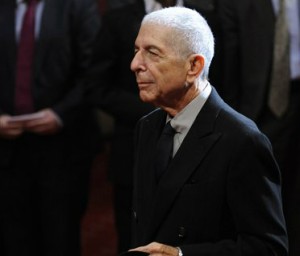
At the end of the Havana Book Fair, a friend showed me the Book of Longing by Leonard Cohen, recently published in a sober binding. On asking him at which stand they were presenting this book, my friend told me, “You must be joking! Our publishers barely know of it Cohen is the guru of those of us who enjoyed the music recreated in the most authentic and experimental poetry. This collection was given to me by a Spanish friend married to a Cuban colleagues.
As I’d barely read Cohen, and only listened to a couple of his records and enjoyed his thank you speech in receiving the Prince of Asturias Award for Literature 2011, I borrowed the Book of Longing and, after reading it, I now share some notes with readers about this great contemporary artist.
Always original, the poet and singer expressed another dimension of gratitude upon receiving the Prince of Asturias Award for Literature 2011. He said that Spain marked him from the beginning of his career, has having started with a Spanish guitar — he now has a Conde — he also discovered his voice reading the poetry of Garcia Lorca and learning the first chords from a Andalusian guitarist in Montreal, who committed suicide after giving him three lessons.
“All that you find favor with in my songs, in my poetry, is inspired by this land, and so I offer you my enormous thanks for this hospitality you have shown me and that is reflected in my work, because it is yours, and you have allowed my to put my signature on the last page.”
Accustomed to being in front of the public with an orchestra behind him, Cohen, now 76, is recognized as one of the most fascinating figures of our time, both in music and in lyrics, although he is more famous as a performer than as a writer, despite the 1956 publication of his first book of poetry, Let Us Compare Mythologies. Since then he has published twelve books, including two novels, The Favourite Game and Beautiful Losers.
Cohen transcends with his poems set to music. He has recorded over seventeen albums, including classics such as Songs of Leonard Cohen and Songs From a Room. According to the creator: “Poetry comes from a place that no one controls, that no one conquers, so it is difficult to accept an award for an activity that I do not control, that is, if I knew where the songs came from there would be songs would more often.”
For some critics he as “one of the best poets of the twentieth century” because “his musical talent has always been accompanied by an astonishing verbal dexterity.” As a performer, he is identified by “his broken and woody voice in which he has sung all the misery and the greatness of the human condition for over forty years.”
Cohen’s ego, that is, his poems set to music and recorded his own voice, has found its existence in life and can express no regrets defeat “in the strict confines of the dignity of beauty. In his Book of Longing, edited by Lumen in 2007, “he has given voice to all his knowledge, his doubts, his fears, his thoughts on love, old age, the world around us, death; accompanied by suggestive drawings by Cohen himself,” which complement his songs.
March 15 2012
